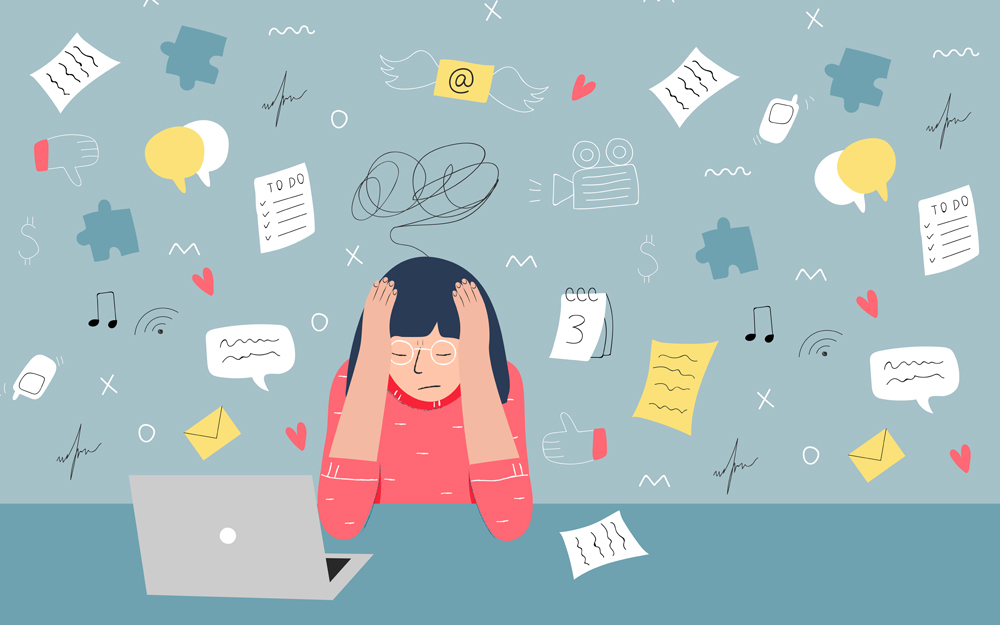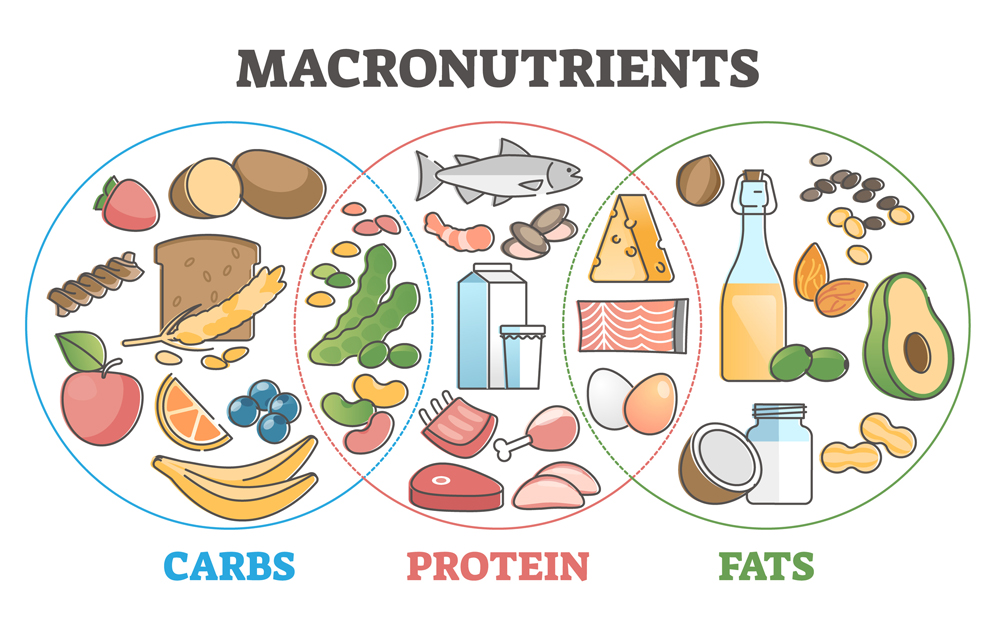Dealing with Stress: Know the Hidden Symptoms
Date
July 25, 2019
Credits

Date
July 25, 2019
Credits
Medical providers featured in this article
In Brief
{{cta-block}}
Stress always finds a way of making itself known.
Tension headaches. Chronic fatigue. Frequent colds and infections. Loss of sex drive.
In some cases, stress can also reveal itself through not-so-obvious physical symptoms—from excessive hair loss to uncomfortable bowel movements.
Here, Cedars-Sinai experts break down why these lesser-known side effects of stress occur and how to find relief.
"When our memory is clouded by stress, our attention span to learn, recall, and focus is reduced."
Hair woes
Stress has the power to temporarily weaken hair follicles, causing the hair to fall out.
"On average, you lose up to 100 strands of hair a day, but if you’re on edge, you could lose up to 500," says dermatologist Dr. Ohara Aivaz.
Sudden hair loss triggered by emotional strain may also cause circular bald patches on the scalp. In rare instances, stress-induced hair loss can occur to the eyebrows, eyelashes, beard, underarms, and other parts of the body.
To strengthen hair and promote regrowth, Dr. Aivaz recommends eating a diet high in protein.
The good news is that once the stress is under control, the hair will likely grow back.
Memory loss
High levels of cortisol—known as the stress hormone—negatively affect the frontal lobe of the brain where short-term memory is stored.
"When our memory is clouded by stress, our attention span to learn, recall, and focus is reduced," says neurologist Dr. Chrystal Reed.
In the Newsroom: Coping and Healing After Violence Invades A Community
Plenty of sleep will not only help you relax, says Dr. Reed, but it will also give your mind a chance to recharge.
Dr. Reed also suggests creating a to-do list or keeping a journal. These exercises can help alleviate the worry that could come from not being able to remember something off the top of your head.
Facial twitch
Adrenaline, also known as the “fight-or-flight hormone,” is released in response to stressful situations. Elevated levels of adrenaline can cause the facial muscles to tighten up, resulting in a twitching eye or quivering lip.
For most people, these spasm-like, involuntary contractions or motor tics are mild and feel similar to a light tug on the face, explains Dr. Reed.
Applying a hot compress or tea bag to the affected area and getting a lot of sleep will help relax the muscles.
"Reducing the amount of alcohol or caffeine you drink can help too, but it’s best to taper off the coffee because cutting it out immediately may bring on a headache," says Dr. Reed.

Period on pause
When a woman’s body is under extreme pressure, it will work extra hard to keep every system operating and shut down anything that is nonessential, including the reproductive system, explains OB-GYN Dr. Jessica Chan.
If the ovaries do not function properly, this could affect the menstrual cycle, including missed or irregular periods. This is called oligomenorrhea or amenorrhea.
"A missed period should not be ignored," warns Dr. Chan. "Women need estrogen—which is released by the ovaries—to protect bones and heart function. A loss of estrogen might lead to long-term complications and impact her fertility.”
Reducing and preventing chronic stress is the best way to get your period back on track, says Dr. Chan.
However, hormone therapy may be needed to restore balance in the body.

Gastro issues
The body’s response to trauma may affect the speed at which the colon contracts to process food down the intestines.
If your colon is working too quickly, it will create diarrhea, and if it’s at a standstill, you could experience constipation, says gastroenterologist Dr. Edward Feldman.
Excess stress especially affects those with conditions like irritable bowel syndrome (IBS) or inflammatory bowel disease (IBD).
It seems deceptively simple, but Dr. Feldman recommends breathing: slowly and deeply breathe in and out through your nose while counting down from 5, several times a day.
In Magazines: Tummy Trouble Tips
De-stress strategies
Escaping stress is almost impossible in today’s fast-paced world, but there are many ways to reduce or relieve it: practicing mindfulness and positive self-talk, exercising regularly, as well as maintaining a healthy diet and healthy relationships.
If you're not sure how to control the triggers, consider seeing a professional counselor or therapist. They can help you develop cognitive-behavioral coping skills.
Otherwise, ignoring high levels of anxiety can increase the risk of high blood pressure, a heart attack, or even stroke.
"It’s always important to find different ways of decreasing your stress," says Dr. Aivaz.
"If you’re feeling a little tense from an upsetting situation, try decompressing with a quick massage or taking a yoga class—it might just do the trick."





